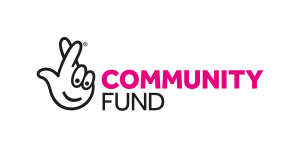Developing research methods resources – democratising research
Our January meeting is at 5.30 pm on Wednesday 18th January, via Zoom. You can register here.
These online meetings offer a space for people with lived experience of mental distress to discuss survivor research and the issues and barriers we face in getting involved in doing mental health research for ourselves.
This month we have Professor Hanna Kienzler talking about the website she is developing to provide a research methods resource:
“Democratising research: The development of an online Research Methods Toolkit
What is research? Who is a researcher? How is research produced? Who benefits from research? Most people associate research with universities where ‘experts’ carry out systematic inquiry into our lives from different disciplinary perspectives. Most people associate it with ‘gold standards’, stiff hierarchies, privilege, and often inaccessibly written texts published in journals behind paywalls.
In the Centre for Society and Mental Health a group of researchers made up of service users, survivors, academics, project coordinators and artists came together to bust this stereotype. Together, we are trying to help address communities’ lack of power over shaping research agendas, data generation, and meaningful policy influence in the field of mental health. One of our first practical steps was to create an online Research Methods Toolkit so anyone who wants it has access to high-quality, engaging sources discussing research design, ethics, qualitative and quantitative methods, analysis, knowledge exchange and more.
In this interactive session, we will discuss the importance and challenge of democratising research. We will also introduce the Research Methods Toolkit by showcasing how it was developed and exploring its usefulness for community organisers, service users, survivors, mental health professionals and researchers who seek to become more confident in conducting their own research that can have a meaningful impact on society and mental health.
Those of you who will attend the session will receive a link to the *draft* Research Methods Toolkit and are invited to explore it beforehand.
Hanna Kienzler
I am Professor of Global Health in the Department of Global Health and Social Medicine and Co-Director of the ESRC Centre for Society and Mental Health at King’s College London. As an anthropologist, I investigate how systemic violence, ethnic conflict and complex emergencies intersect with health and mental health outcomes in the occupied Palestinian territory, Kosovo, and, among refugees, in the UK. I conduct research on the mental health impacts of war and trauma on survivors; on what it means for persons with severe mental illness to live and participate in their respective communities; and on humanitarian and mental health interventions in fragile states. I am also co-founder of the Refugee Mental Health & Place network. Methodologically, my work combines ethnography with a range of other qualitative methods, participatory action approaches and arts-based techniques.
Follow me on twitter: @HannaKienzler
Find out more about my work:
• Website: https://www.kcl.ac.uk/people/hanna-kienzler
• Blog: “SymptomSpeak. Women’s Struggle for History and Health in Post-War Kosovo” (English and Albanian): https://symptomspeak.com/
• Illustrated Storybook: “Get to know us! Our lives with mental illness in the Palestinian community” (English and Arabic): www.get-to-know-us.com
• Refugee Mental Health & Place network: https://www.kcl.ac.uk/research/refugee-mental-health-place
The meeting is via Zoom and you can register here.
There will also be space for those attending to raise support needs for discussion.
Although our primary focus is on mental health research in England, survivor researchers from outside England or the UK are welcome to register and attend.



0 Comments